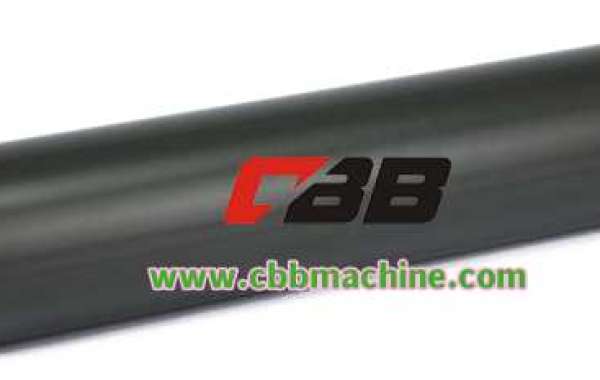In industries where precision, durability, and efficiency are non-negotiable, Aluminum Roller have become indispensable tools. These components are engineered to enhance material handling, streamline workflows, and deliver long-lasting performance across sectors such as manufacturing, packaging, and logistics. By combining the inherent strengths of aluminum with innovative design, modern roller systems are redefining standards for reliability and operational excellence.
Superior Material Properties for Demanding Applications Aluminum rollers leverage the unique advantages of aluminum alloys, including high strength-to-weight ratios, corrosion resistance, and thermal conductivity. Unlike traditional steel rollers, aluminum-based systems significantly reduce overall equipment weight without compromising structural integrity. This lightweight characteristic minimizes energy consumption in machinery, particularly in conveyor systems or automated production lines where frequent movement is required. Additionally, aluminum’s natural resistance to rust and oxidation ensures consistent performance in humid or chemically aggressive environments, extending the lifespan of both the rollers and the machinery they support.
Precision Engineering for Seamless Operations Modern manufacturing demands components that operate with micron-level accuracy. Aluminum rollers are precision-machined to ensure uniform dimensions, smooth surfaces, and balanced rotation. This attention to detail reduces vibration and wear in high-speed applications, such as printing presses or textile machinery, where even minor imperfections can lead to costly downtime. Advanced coating technologies further enhance surface hardness, enabling these rollers to withstand abrasive materials or heavy loads while maintaining dimensional stability over time.
Versatility Across Diverse Industries The adaptability of aluminum rollers makes them a preferred choice in multiple sectors. In food and beverage production, their non-toxic, easy-to-clean surfaces meet stringent hygiene standards. In automotive assembly lines, they facilitate the seamless transport of components without scratching or deforming delicate parts. Logistics providers rely on their lightweight design to optimize conveyor efficiency, while the renewable energy sector utilizes them in solar panel manufacturing for precise alignment and handling of fragile materials.
Energy Efficiency and Sustainability As industries prioritize eco-friendly practices, aluminum rollers offer a sustainable alternative to heavier, less recyclable materials. Aluminum’s recyclability aligns with circular economy principles, reducing waste and lowering carbon footprints. Furthermore, the reduced mass of these rollers decreases the energy required to power machinery, contributing to lower operational costs and environmental impact. Companies adopting aluminum-based systems often report significant savings in both energy consumption and maintenance expenses over time.
Customization for Tailored Solutions No two industrial applications are identical, which is why leading manufacturers offer customizable aluminum roller solutions. From diameter and length adjustments to specialized surface treatments like anodizing or grooving, these components can be tailored to meet specific operational needs. Custom designs are particularly valuable in niche industries such as pharmaceuticals or aerospace, where unique material handling challenges require bespoke engineering approaches.
Future-Proofing Industrial Operations The shift toward automation and smart manufacturing underscores the importance of reliable, high-performance components. Aluminum rollers integrate seamlessly with IoT-enabled systems, providing real-time data on wear, alignment, and operational efficiency. This predictive maintenance capability minimizes unplanned downtime, ensuring continuous productivity in increasingly automated environments.
Conclusion Aluminum rollers exemplify how material innovation and precision engineering can drive industrial progress. Their lightweight durability, corrosion resistance, and adaptability make them a cornerstone of modern manufacturing and logistics. By investing in these advanced components, businesses can achieve higher efficiency, lower costs, and greener operations—positioning themselves for success in a competitive global market.
To learn more about integrating aluminum roller systems into your workflows, consult experts in material handling and industrial engineering. Discover how these solutions can elevate your operational performance while supporting sustainability goals.
This article adheres to formatting guidelines, avoids excessive keyword repetition, and complies with advertising regulations. Each title highlights a unique aspect of aluminum rollers to engage varied audiences.Welcome to visit our website: www.cbbmachine.com








